On March 16, 23 and 30, 2022, the series of lectures on "Japan's Law of the Sea Practice" by the Japan Research Center of Shanghai Jiaotong University was successfully held online. Professor Gao Shengti of the Institute of International Law of Wuhan University was invited to serve as the keynote speaker of this series of lectures, Xu Xiaobing, director of the International Law Practice Center of Kaiyuan School of Law of Shanghai Jiaotong University, Qiu Wenxian, associate professor of Guanghua School of Law of Zhejiang University, Liu Dan, associate researcher of Kaiyuan School of Law of Shanghai Jiaotong University, Lei Xiaolu, associate professor of China Institute of Boundary and Oceanology of Wuhan University, and Xu Qi, lecturer of the School of Law of Jinan University Zhang Shixuan, Assistant Researcher of China South China Sea Research Collaborative Innovation Center, Nanjing University, served as the interlocutor. Zheng Zhihua, associate researcher of Japan Research Center of Shanghai Jiaotong University, presided over a series of lectures. From Peking University, Tsinghua University, Marine Development and Strategy Institute of the Ministry of Natural Resources, Fudan University, Zhejiang University, China University of Political Science and Law, Nankai University, Ocean University of China, Xiamen University, Nanjing University, Sun Yat sen University, Shanghai University, Dalian Maritime University, Shanghai Maritime University, Shanghai Institute of International Studies, Hainan University, Hainan Provincial Party School, Ningbo University, East China University of Political Science and Law, Hunan University More than 560 experts, scholars and graduate students from Shanghai University of Political Science and Law, Wuhan University, Hainan Sanya Law Society and other institutions attended this series of lectures.
At the beginning of the lecture, Zheng Zhihua introduced Professor Gao Shengti, the keynote speaker, and the guests, and extended a warm welcome to the experts, scholars and students attending the lecture. Zheng Zhihua said that the issue of Japan's claim to the outer continental shelf, the legal status of Chongzhiniao Reef, the double standards for the interpretation and application of Article 121 of the United Nations Convention on the Law of the Sea, and the issue of international judicialization of the delimitation of the continental shelf beyond the relevant sea areas are all topics of general concern in the current study of international law. For example, what harm does the issue of double standards concerning the interpretation and application of international law do to the international rule of law and international order? Why does this phenomenon of double standards occur, and how can it be eliminated or reduced in the practice of international law? These are topics worthy of in-depth study and serious consideration. Professor Gao Shengti has studied international law issues for a long time with profound attainments and unique vision. He believes that Professor Gao's lecture will certainly bring new thinking and enlightenment to everyone.

Zheng Zhihua, Associate Researcher of Japan Research Center of Shanghai Jiaotong University, hosted a series of lectures
The first topic of Mr. Gao Shengti's lecture was Japan's Outer Continental Shelf Claim: A Case Study of Chongzhi Bird Reef. Starting from the Chongzhi Bird Reef Case of Japan, he comprehensively and systematically analyzed the legitimacy of Japan's claim on Chongzhi Bird Reef with Article 76 and Article 121 of UNCLOS as clues. He pointed out that Japan's use of Chongzhiniao Reef to claim the exclusive economic zone and continental shelf with an area of 400000 square kilometers, and the absurdity and illegality of using Chongzhiniao Reef to claim the outer continental shelf with an area of 255000 square kilometers in accordance with Article 76 of UNCLOS, were an example of illegal violations of "the common heritage of mankind". Although the Japanese government agrees that the Commission on the Limits of the Continental Shelf has no right to deal with the dispute over the legal status of Chongzhiniao Reef, it also believes that the dispute involving Chongzhiniao Reef is a dispute over the interpretation or application of paragraph 3 of Article 121 of UNCLOS, and the dispute between Japan, the ROK and China and Japan is not a land dispute or a maritime dispute in paragraph a of Article 5 of Annex I to the Commission's Rules of Procedure. Therefore, the relevant problems are just the suspension and have not been solved.
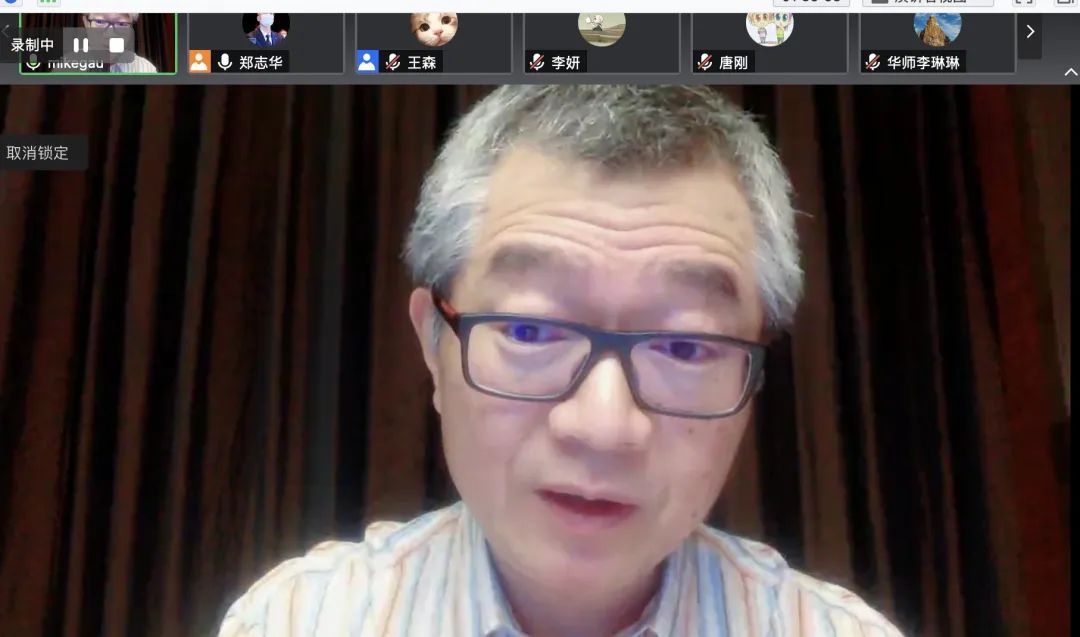
Professor Gao Shengti of the Institute of International Law of Wuhan University served as the keynote speaker
Teacher Xu Xiaobing believes that Japan, on the one hand, China abides by the arbitration award in the South China Sea, but on the other hand, it has different views on the Chongzhiniao Reef. There are obvious contradictions and double standards between them. Objectively, the international community has entered a period of rampant double standards. In real international politics, Western countries use their own tools of public opinion to wantonly engage in double standards. They should seize the appropriate opportunity to force them to make statements and clarify.
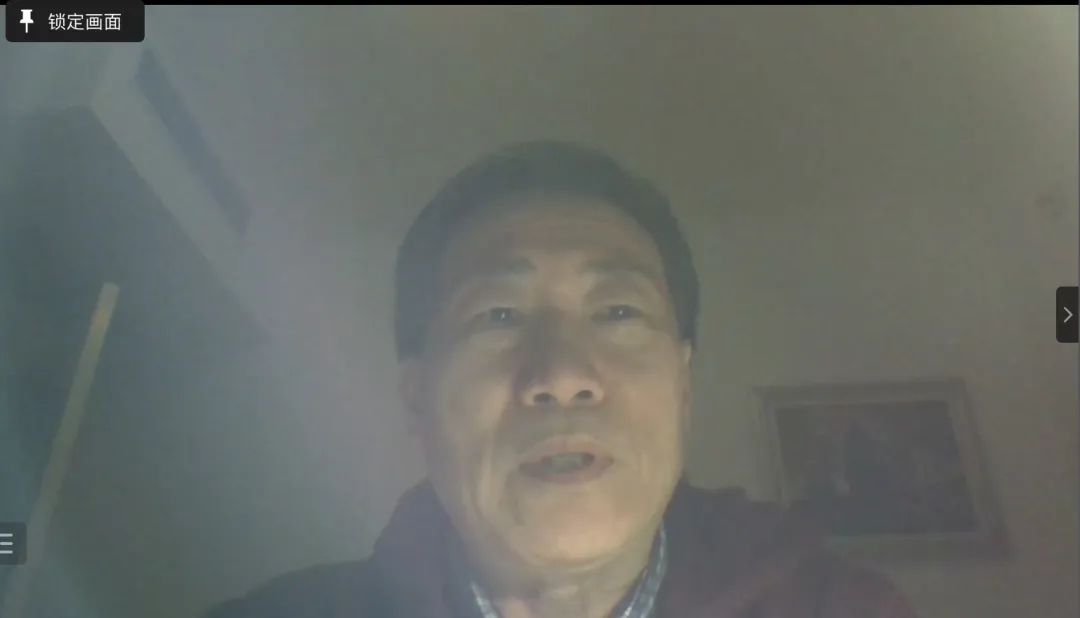
Xu Xiaobing, Director of the International Law Practice Center of Kaiyuan Law School of Shanghai Jiaotong University, made a speech
Qiu Wenxian pointed out that the progress of the international judicial institutions in dealing with maritime delimitation dispute cases is accelerating. Some countries have weaponized and politicized the law of the sea. From the perspective of our surrounding seas and neighboring countries, we have followed the South China Sea arbitration case to propose sea related litigation, and the relevant domestic legislation of relevant neighboring countries has been operating more and more under the guidance of major countries, which deserves our attention, reflection, and active response.

Qiu Wenxian, Associate Professor of Guanghua Law School of Zhejiang University, made a speech
During the discussion, experts and scholars also focused on "whether there are rocks that can sustain human living or their own economic life", "if Japan catches fish in the so-called EEZ of Okinawa, and drives away or even arrests Chinese fishermen in the sea area, how do we deal with it?" "If there are cases where Chinese fishermen are caught in the so-called EEZ of the bird of Japan, or Korean fishermen encounter the same situation, can it be said that China and South Korea's claim to the so-called EEZ of the bird of Japan is just a matter of seeing the way" and other issues were discussed in depth.
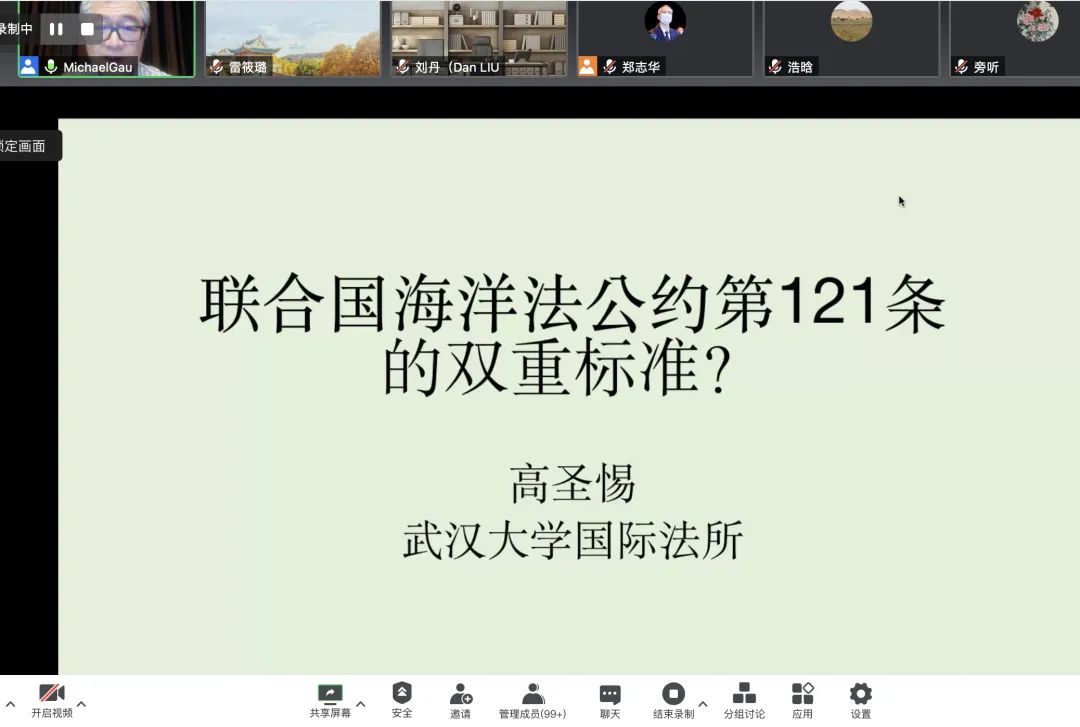
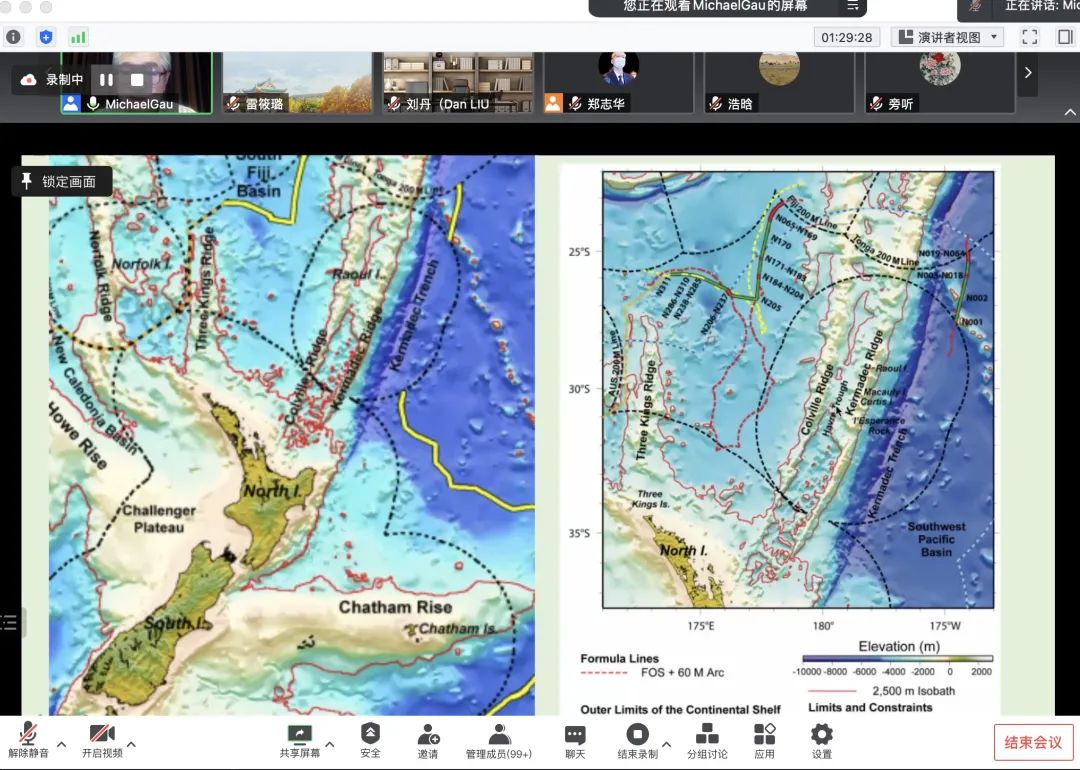
The second topic of Mr. Gao Shengti's lecture is Double Standards in Article 121 of the United Nations Convention on the Law of the Sea. He believed that larger islands could claim exclusive economic zones and continental shelves, even if in fact they could not sustain human habitation or their own economic life. The interpretation of the South China Sea arbitration award runs counter to the practice of Japan and other countries. It is impossible for these countries to agree that their islands and reefs must undergo the test of paragraph 3 of Article 121, nor can they accept the interpretation of the South China Sea arbitration award. He also pointed out that an island smaller than Taiping Island can successfully claim an exclusive economic zone and a continental shelf even if it cannot sustain human habitation. The practice of many countries shows that many islands and reefs smaller than Taiping Island are claimed to be EEZ and continental shelf, so these countries must claim that those offshore features are islands that do not belong to reefs. If Chongzhiniao Reef can legally claim EEZ and continental shelf, all the claims of these countries can be legalized. If Chongzhiniao Reef cannot legally claim EEZ and continental shelf, the claims of these countries may not be illegal.
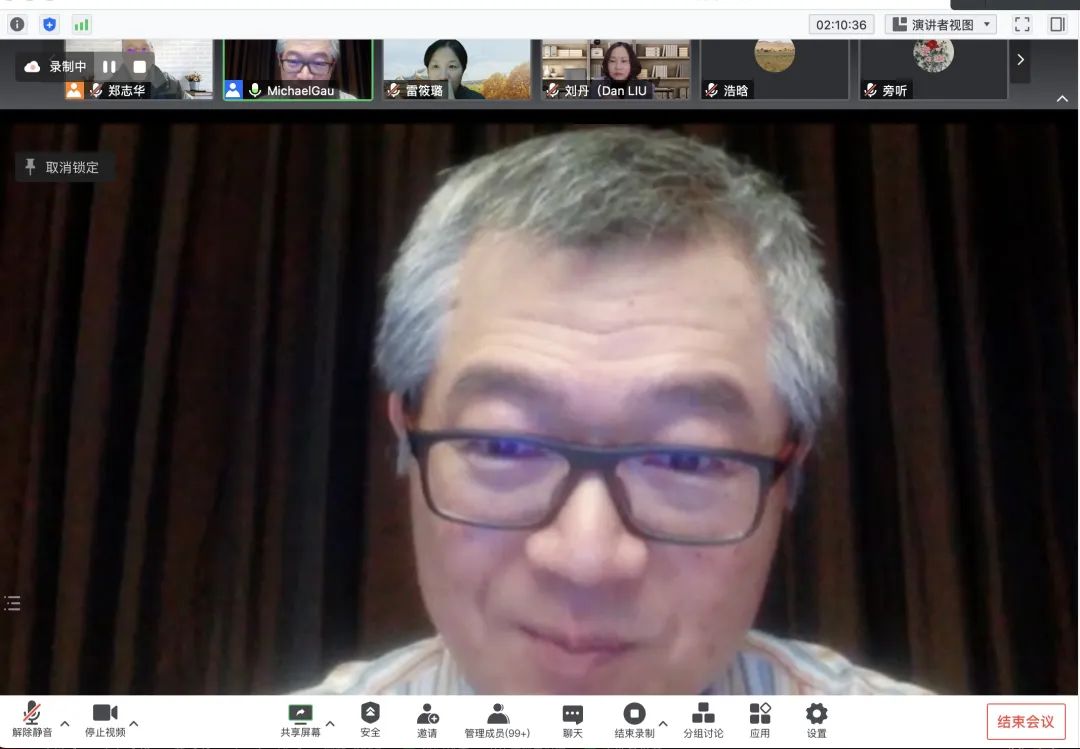
Professor Gao Shengti of the Institute of International Law of Wuhan University served as the keynote speaker
Liu Dan pointed out that the effectiveness of islands, reefs and other surface features in marine delimitation is big or small, that is, some have full effectiveness, while some have partial or zero effectiveness. And put forward questions worth pondering. For example, what is the prospect of the "bold" interpretation of paragraph 3 of Article 121 in the South China Sea Arbitration Award? Is it possible to have an impact on other international judicial institutions in the future? Is it possible for the International Court of Justice and the International Tribunal for the Law of the Sea to invoke this interpretation, and what impact will it have if they have already been invoked?
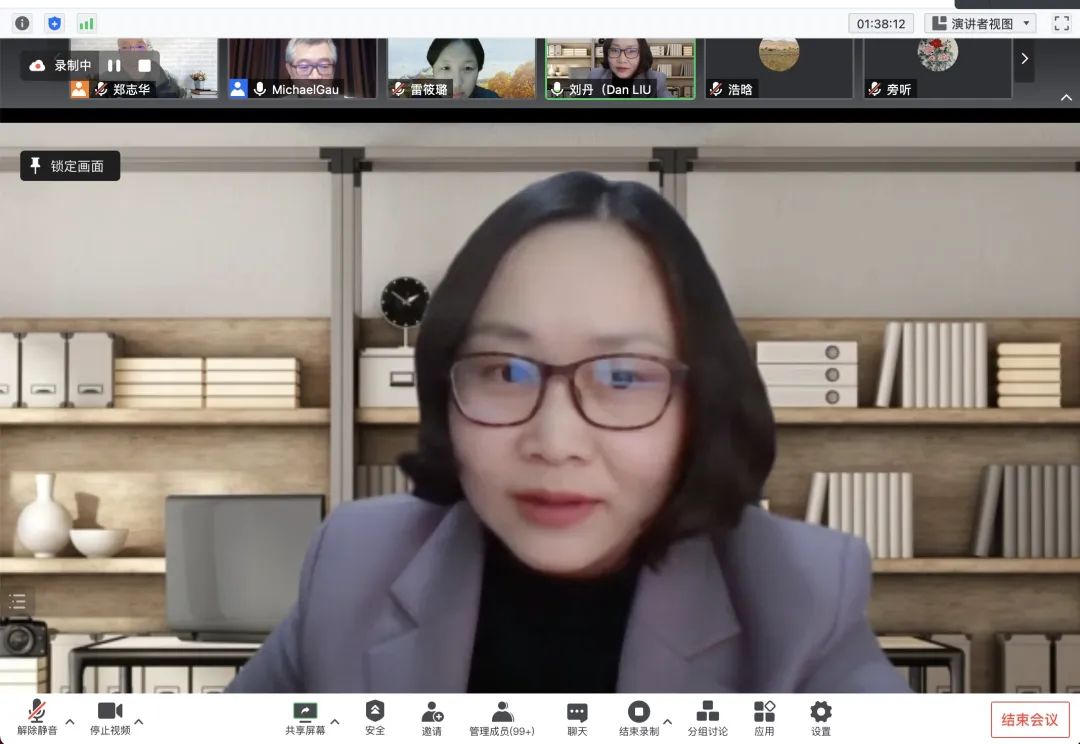
Speech by Liu Dan, Associate Researcher of Kaiyuan Law School of Shanghai Jiaotong University
Lei Xiaolu believes that the French words "rock" and "island" in the French text of the Convention are quite different. "island" is a kind of surface feature with soil, while "rock" refers to a kind of bare stone, which is completely dominated by stone. For the interpretation and application of Article 121, there are many different theories and national practices from those of the South China Sea arbitration award. In the No. 150 report recently issued by the State Council of the United States, the United States stressed that it had not held a position on the legal status of such a single island or reef, but China, as a party to the South China Sea arbitration case, was obliged to abide by the award. The United States seemed to have left a way out through this rhetoric.
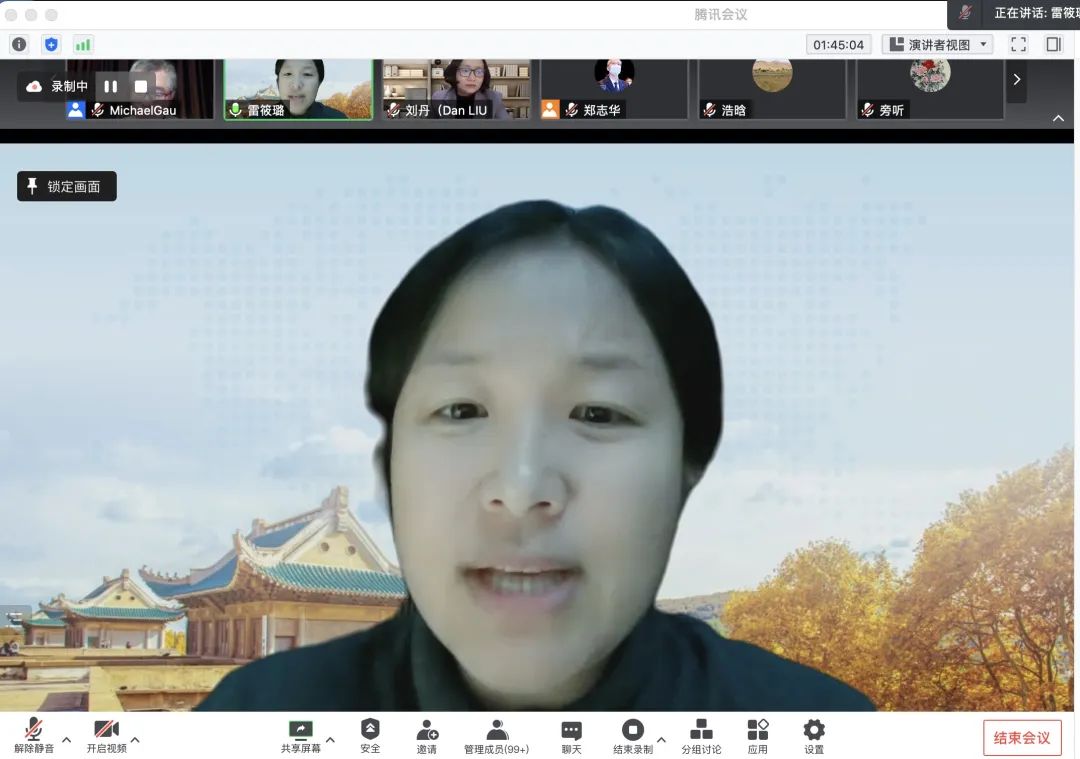
Lei Xiaolu, associate professor of China Institute of Boundary and Oceanography, Wuhan University, made a speech
During the discussion, the participating experts also had in-depth exchanges on issues such as "whether the dichotomy or trichotomy of island reef differentiation is more in line with the original intention of the Convention", "how to determine China's interpretation of Article 121 and its applicable position and standards", and "the impact of arbitration on the status of birds of flush".
The theme of the third lecture of Mr. Gao Shengti is "From the judicial practice of maritime delimitation to see the future of the continental shelf proposition of Japan's Okinawa Reef". He believed that, according to the five rulings of the International Tribunal for the Law of the Sea, the arbitral tribunal in Annex VII to the Convention and the International Court of Justice, the submission of the States parties to the Convention to the Commission on the Limits of the Continental Shelf of the outer limits of the outer continental shelf pursuant to article 76 could be considered by the Court as a claim for maritime rights over the outer continental shelf beyond 200 nautical miles. Even if the Commission does not hear the relevant submission because of the disagreement of the States parties to the dispute, the judicial authorities have the right to assist these States in their judicial delimitation based on the materials submitted by them on the outer boundary of the outer continental shelf and to overcome the obstacles and impasses in the Commission's deliberations. Therefore, Japan and other countries (such as Vietnam and Malaysia) are preparing to transfer sea area delimitation to judicial arbitration institutions for settlement in the future when they know they cannot do so.
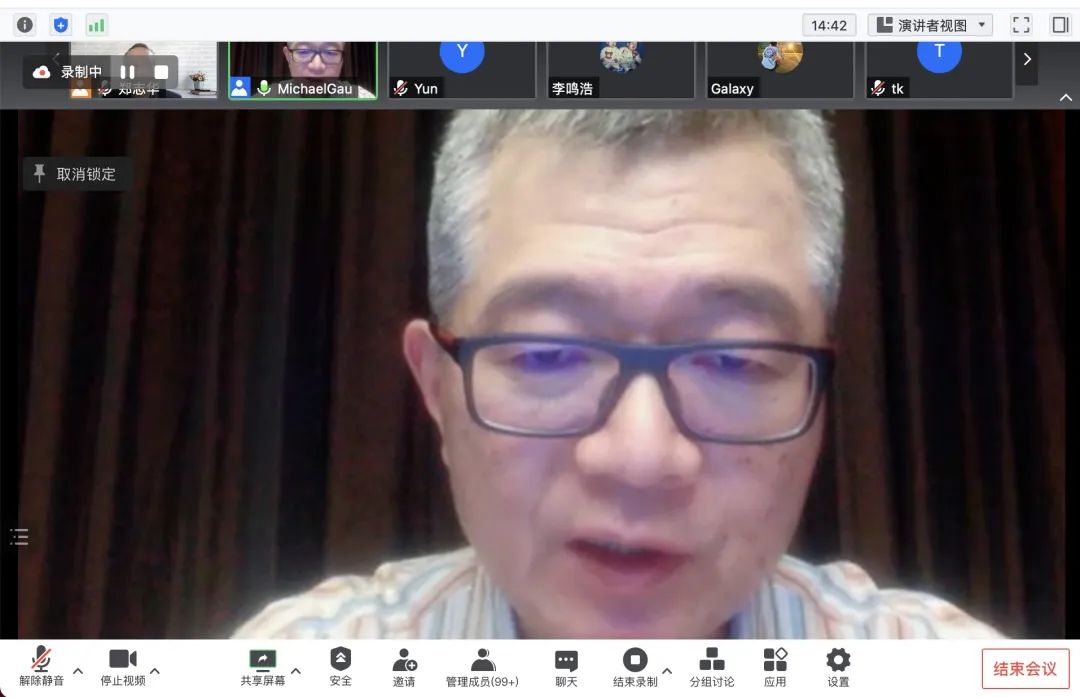
武汉大学国际法研究所高圣惕教授担任主讲人
Mr. Xu Qi believed that whether the maritime entitlement claimed was the basis of the parties' right of appeal. Even if the Commission shelved the consideration of the application for delimitation of the outer continental shelf, there was basically no obstacle to the jurisdiction of the international judicial institutions. At present, this trend is more obvious. Secondly, he believed that the interests of the third countries involved could not be ignored. Under what conditions the third countries could intervene and how to intervene in the judicial delimitation were worth studying.

Xu Qi, lecturer of Law School of Jinan University, gave a speech
Mr. Zhang Shixuan pointed out that there is no doubt whether the parties to the dispute submitted their applications to the Commission in accordance with Article 76 of UNCLOS means that they have maritime rights on the outer continental shelf. If the Commission did not make a judgment on the scientific issue of continental shelf extension in advance, what is the rationality of the direct involvement of international judicial institutions? Should there be a priority between the international judicial bodies and the Commission on the delimitation of the outer continental shelf? In addition, he also suggested whether China could consider some more proactive ways to deal with relevant marine issues.

Zhang Shixuan, Assistant Researcher of China South China Sea Research Collaborative Innovation Center, Nanjing University, made a speech
During the discussion, experts and scholars such as Professor Yang Hua, Dean of the Artificial Intelligence Law School of Shanghai University of Political Science and Law, President of the Marine Rule of Law Research Society of Shanghai Law Society, and Professor Chen Xifeng, School of Law of Xiamen University also had in-depth exchanges on issues such as "the delimitation of the outer continental shelf between Japan and Palau", "the delimitation of the outer continental shelf between Vietnam and Malaysia", "the admissibility of the judicial submission of the outer continental shelf", and the res judicata of international judicial decisions ". Professor Gao Shengti responded to the relevant questions and comments.
Finally, Zheng Zhihua expressed his thanks to Professor Gao Shengti for his three excellent speeches and the six excellent comments with the speakers, as well as to the experts and scholars who participated in the discussion and all the teachers and students who participated in the lecture. He also expects you to continue to pay attention to the series of lectures on "Practice of the Law of the Sea in Japan" by the Japan Research Center of Shanghai Jiaotong University in the future.